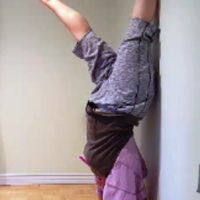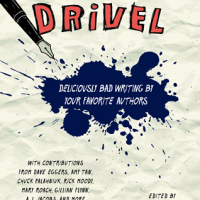You know that thing about not putting characters by themselves too often because then it’s harder to have an antag in that protag v. antag equation?
Yeah, that’s not what this is really about, but I was thinking about how people always say that. Don’t put that character in that room by themself unless there’s a Bengal tiger in there for them to tame. That would be cool, having a friend who’s a Bengal tiger, but in the wild, where it could run free and maybe bring you a present of a fish now and then since there probably isn’t a Safeway.
 Then there’s that thing about wanting to know more about the mother, or knowing too much about the mother. If it’s my mother, then god love her, you would have a dilemma, or I would have the dilemma, not to project this onto you. The point is that you could talk to her for a while and you’d know a lot about her but you wouldn’t really know anything about her. Interesting to try to capture that on the page. That’s also not really what this is about.
Then there’s that thing about wanting to know more about the mother, or knowing too much about the mother. If it’s my mother, then god love her, you would have a dilemma, or I would have the dilemma, not to project this onto you. The point is that you could talk to her for a while and you’d know a lot about her but you wouldn’t really know anything about her. Interesting to try to capture that on the page. That’s also not really what this is about.
 Or that one about how good fiction should read like it’s true. That’s always been a harder one for me to get my head around. I can be gullible, but I knew that Lilliput was a made-up place. And Tom and Becky in the cave? Come on! But there are those stories where we think, yeah, that could be true. I never related that question of the reader wondering about true-ness or lie-ness to my own work so much until I recited part of a story I wrote at an open mic. The story’s about this kid who’s trying to earn money to visit her dead mother’s grave site. She’s afraid of this mysterious guy in town, and she can bake. I know, good luck with that.
Or that one about how good fiction should read like it’s true. That’s always been a harder one for me to get my head around. I can be gullible, but I knew that Lilliput was a made-up place. And Tom and Becky in the cave? Come on! But there are those stories where we think, yeah, that could be true. I never related that question of the reader wondering about true-ness or lie-ness to my own work so much until I recited part of a story I wrote at an open mic. The story’s about this kid who’s trying to earn money to visit her dead mother’s grave site. She’s afraid of this mysterious guy in town, and she can bake. I know, good luck with that.
Anyway, at this open mic, my recitation went well, and despite being slightly older than my character, I successfully projected eleven-ish and people were touched. Afterward, this woman said how much she liked the story, and that she was from Minnesota and familiar with the setting. Cool. Then she asked if the story was true.
“Oh, no,” I said. “It’s made up.”
Her face fell. If I was writing this into a story, I’d write it that way without embellishment: Her face fell. She looked seriously disappointed, like she wanted to take back everything good she said about the story.
I could’ve said, “Me and my friend Cynda were afraid of this guy in town in that way that kids make up stuff to be scared of, and this one time she wrecked her bike in front of his house. That part was true. Yeah, and my dad could fix cars.”
I’m not sure if that would have made that nice lady feel any better, because I think what she really wanted was for me to be that kid filled with longing and hope, and to have that hope dashed by events of my own making, because can’t we all relate to that at one time or another? Well, okay, so I’m a version of that kid. That kid sprang from the loins of my fingers, from the muddle of memories and fantasies and emotions that dwell in my subconscious and consciousness.
What is the responsibility of the writer in these cases, I started to wonder. Not to lie and pretend that the fiction is true, but how much of ourselves do we admit is in it or not? How much do we admit to ourselves about that? This other story I wrote that isn’t published yet is about a lonely woman who likes this guy, and he isn’t into her. I read it to a few of my friends and they started giving me hugs.
Oh yeah, the aforementioned kid story is called “Dearest” and appears in the Summer 2014 issue of Clover, A Literary Rag, which by the way, if you’re a writer, I totally recommend submitting to since the editors are awesome to work with.
Back to the one about the lonely lady who is apparently such a sad, pathetic wretch that she inspires instant sympathy—so should I worry too much whether, assuming I’m lucky enough to sell it, that readers will think she’s me? Is she me? Maybe she is, and I don’t want to admit it, or maybe she isn’t, and I did a pretty good job of creating a realistic character.
I fell into the trap of worrying about what people would think of me if they read this story. Should I at least make the woman cuter, I wondered. What would I tell that lady from Minnesota if she reads it and wants to know if it’s true? Well, I doubt she would read it because she’s annoyed with me, but if she did, I guess I could say something enigmatic like, “It’s as true as you want it to be,” or “Did it seem true to you?”
But that wouldn’t really answer the question would it, and maybe the answer is that the question should never be answered. Isn’t it much more fun to wonder?
XO Laurel Leigh


















That makes sense, as if some readers want to categorize the writer in some way for themselves as a point of reference, Although it then becomes very interesting to think about the writer as a brand, even if we don’t consciously intend ourselves that way. It’s a very interesting interpretation of literature to place emphasis on the writer as well as the material. No matter what the product, we want a persona to associate with it. This may give me an identify crisis right now!
Writers! Always going from one crisis to the next. Once you figure out who you are, please clue me in on who I am. 😀 Cheers!
FMIK, unless you write fiction, you were once married to an Elvis impersonator!
Just wait until I finish the Bobbie novel! 😀
A joy to find this post in my inbox this morning!
Thinking that line between fiction and memoir can be wobbly for some, like wandering through the bush and wondering upon which latitude you’re standing. Exploring a story, even getting lost, is why many of us read and, perhaps, write. The lady from Minnesota seems to have needed a map and maybe a trail guide to venture out of her own reality.
Happy New Year, Laurel!
Thanks for such a thoughtful comment, Susan. It’s definitely my habit to blur the fiction/memoir line in writing stories, and it’s so interesting to then see the effect if a reader is willing to let me know. Happy new year to you as well!
Ahh, Laurel. I love your musings. Sometimes I think that people want to know something about the writer, and they think that they’ll know something about the writer if the story is true. But here’s the paradox, and I’m not the first to think this. The writer who wrote the story is not the writer who’s standing in front of the audience reading the story. One only exists for the writing and the other for the reading. And then there’s the third writer who’s out there living, a completely different person altogether. So I’m thinking that the lady who asked you that question thought she’d know you in some way if she could pin you into the story. But, alas, she may as well be playing pin the tale on the donkey when the donkey has done left the room and she’s still wandering about the room blindfolded, thinking that if she could just find a little fur, she’d know where to put the tail. Know what I mean?
Happy New Year, dahlink!
Ooh, your comment is making me think about this even more. It is an interesting point that you make about the multiple personas of the writer. Does the story resonate more for the reader if they feel they know the writer in some fashion? So are they really after the story or its writer, and why would the second case exist?
The second case exists for the “acting,” the writer playing the part of the writer who wrote the piece that they’re reading. I do think the story resonates more if the reader feels “in the know” about the writer. Hmmm.
Great post, Laurel. And Happy New Year!
I find interesting what Jilanne says about the multiple personas any writer (or person, for that matter) embodies, depending upon the occasion; but thinking about it too much—the writer who wrote the piece, as opposed to the writer who reads the piece, as opposed to the writer who works part-time as a carpenter and moonlights as a night janitor—makes my head hurt.
Where I think your lady from Minnesota went wrong—not that there’s any wrong way to read a story—is that I think she felt the best way into a story she liked was to learn more about the author and project more of her understanding of the author’s bio into said story.
When really what she might consider doing, if she liked the story so much—she might consider forsaking any of the author’s bio and projecting her own life into the story. If there was a reason why the lady from Minnesota liked about your piece, that reason probably had to do with how it connected with some significant events from her own life.
Just saying.
Oh, also love the notion of a character springing from the ‘loins’ of your fingers. I don’t think that’s ever happened to me before. Sounds painful!
Wes, dahlink! Happy New Year Year to you!
I think your observation is spot on. Just sayin’. When the reader likes a story, it does connect with them in some way. Maybe an author’s response to a reader who asks this question should be, “That’s an interesting question, but I find my readers much more interesting. How does it reflect on your life?” But then, that might alienate the reader who wants to connect with the author. Hmmmmm.
Does the mention of loins send our PG blog into R-rated territory?
It’s worth trying out that response though, just to see what the answers might be. Readers are so important and so interesting, because each one goes away with their version of the story, so it’s fascinating and ultimately humbling to have them read and comment.
I think we’re definitely in R territory.
Just so we don’t venture toward the end of the alphabet. 😀
Exactly, unless of course there’s a seriously literary justification for so doing. I can’t think of one at the moment though. 🙂
I’m delighted that both the story and this post prompted so much discussion. Thank you for such a thoughtful response, Wes.
The loins of my fingers have nearly healed . . .